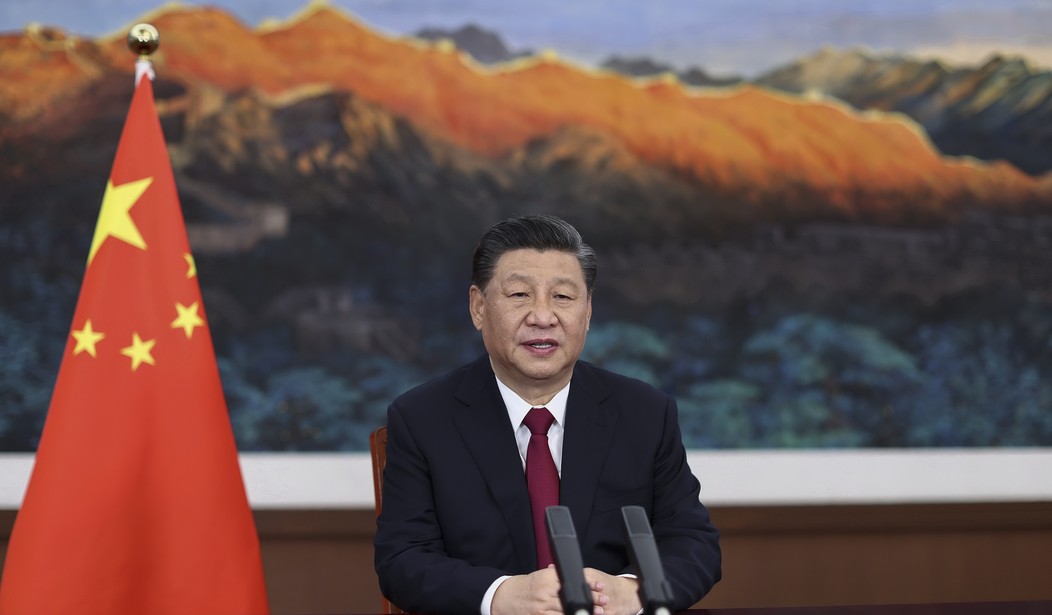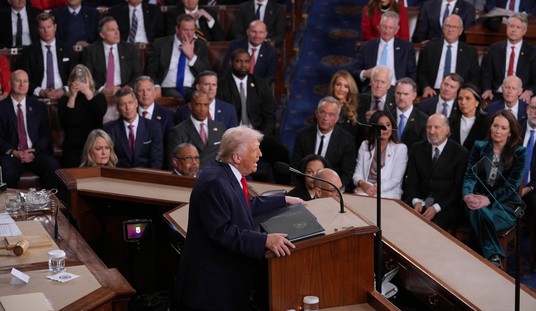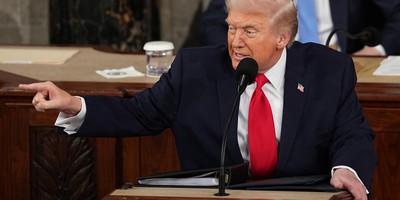Although eight in ten Americans hold a negative view of communist-run China, not everyone understands the full spectrum of threats emanating from Beijing and how they could directly impact Americans. Even fewer are taking action to mitigate such threats. That's changing, however, with state leaders seeking to harden infrastructure, root out vulnerabilities, and send a clear message to the CCP that their constituencies aren't an easy target.
Earlier this year, FBI Director Christopher Wray told the House Select Committee on the Strategic Competition Between the United States and the Chinese Communist Party that "there has been far too little public focus on the fact that PRC hackers are targeting our critical infrastructure — our water treatment plants, our electrical grid, our oil and natural gas pipelines, our transportation systems — and the risk that poses to every American requires our attention now."
Wray said in his January testimony that CCP hackers have already positioned themselves on America's civilian infrastructure "in preparation to wreak havoc and cause real-world harm to American citizens and communities" if or when China chooses — likely to coincide with an invasion of Taiwan — by delivering "low blows against civilians."
The same month, Michael Lucci launched State Armor, an organization aiming to "transform America’s decentralized system of federalism into a tremendous national security asset" by mobilizing stakeholders to help states across the country develop and implement "comprehensive, commonsense, and bipartisan solutions to protect themselves from what is widely regarded as a generation-defining foreign threat." Just a few months into the effort, State Armor has already seen success with state leaders implementing policies countering CCP threats and malign activities, including Pacific conflict stress tests.
The purpose of such stress tests: "to get ready for China to start a conflict, specifically over Taiwan," Lucci told Townhall this week. The impetus for the stress test, he explains, was COVID-19 and the chaos it wrought outside of the lockdowns and mandates. "It was a problem over there that put every governor in the country front and center" as they confronted the pandemic.
Recommended
The COVID times were bad, but a "rough estimate" is that a Chinese invasion of Taiwan would bring "10-to-20 times the disruption that we experienced during the coronavirus, a massive multiple on that massively disruptive event," Lucci said.
As many predict — including House Foreign Affairs Committee Chairman Michael McCaul (R-TX) with whom Townhall recently traveled to Taiwan — a Chinese invasion of Taiwan will cause immediate financial and economic chaos due to supply chain disruption and be paired with a concurrent cyberattack targeting the United States.
"That's what the stress test wants to get in front of," Lucci explained to Townhall. "How would those supply chains break? How do you fix it ahead of time? How would critical infrastructure come under attack? How do you harden it ahead of time?"
In Nebraska, Republican Governor Jim Pillen and state Senator Eliot Bostar, a Democrat, led the charge to implement the Pacific Conflict Stress Test Act. The bill passed Nebraska's legislature unanimously. In addition to being a win for bipartisan agreement in divided times, Lucci told Townhall that U.S. military leaders have communicated to Nebraska that "the more states that do the stress test, the slightly less likely chance we have a war because China sees America is actually hardening and preparing and being less vulnerable."
State Armor-backed policies such as the stress test, Lucci noted, go toward "enhancing our readiness posture at the state level" and move state and local leaders to address vulnerabilities and take steps to harden critical infrastructure as alarm bells continue to sound.
One such warning came in a March letter from National Security Advisor Jake Sullivan and EPA Administrator Michael Regan to governors asking for "support to ensure that all water systems in your state comprehensively assess their current cybersecurity practices to identify any significant vulnerabilities, deploy practices and controls to reduce cybersecurity risks where needed, and exercise plans to prepare for, respond to, and recover from a cyber incident."
The letter from the Biden administration specifically calls out China's "state-sponsored cyber group known as Volt Typhoon" that has "compromised information technology of multiple critical infrastructure systems, including drinking water, in the United States." The federal government's "high confidence" assessment is that Volt Typhoon hackers have pre-positioned themselves "to disrupt critical infrastructure operations in the event of geopolitical tensions and/or military conflicts."
The threats are clear, the warnings are growing, and State Armor has the remedies ready to go. In addition to the Pacific conflict stress tests, Lucci and his organization have more than a dozen proposals state leaders can pursue to mitigate CCP threats. Beyond protecting critical infrastructure and building supply chains that aren't dependent on China, there's also the need to counteract CCP influence operations.
One policy State Armor suggests leaders implement to "cripple" such CCP efforts is a state-level version of the federal Foreign Agents Registration Act — FARA — that has two key differences. "First, it broadens federal FARA by removing the exemptions that exist for academic, research, and commercial [activity]," Lucci told Townhall. Those exempted activities are where the CCP "runs all their spies," he added. "So we broaden it in that sense but then we narrow the scope to only foreign adversaries and foreign terrorist organizations."
With initial success under its belt, State Armor is planning to expand its policy efforts to even more states in the months ahead as leaders heed alarm bells and realize the necessity of protecting their residents by preparing for and hardening against CCP threats.
"There's a tremendous amount that the states can — and I really believe will — do," Lucci told Townhall. "China's going to hate it."
























Join the conversation as a VIP Member